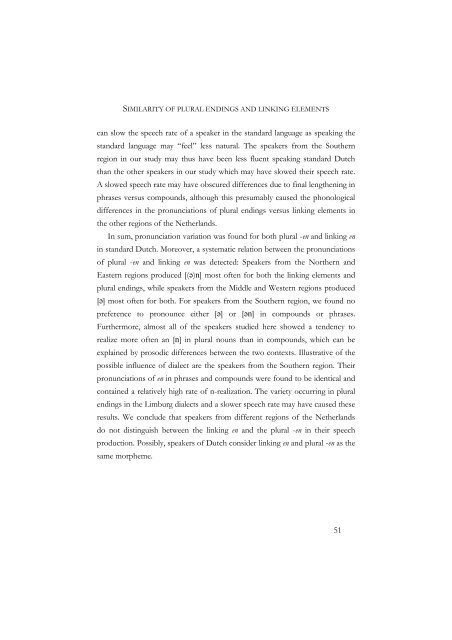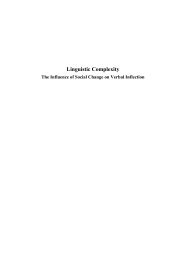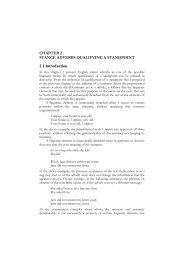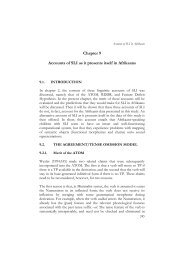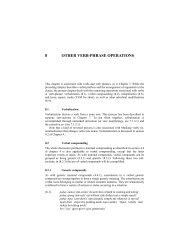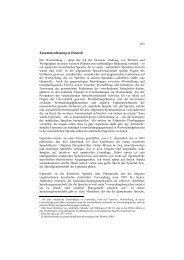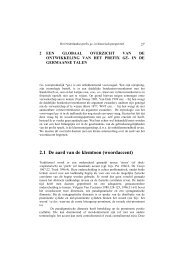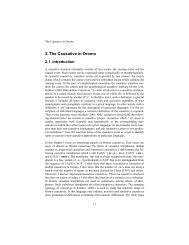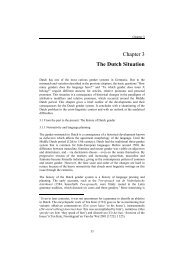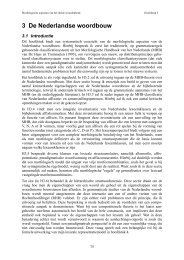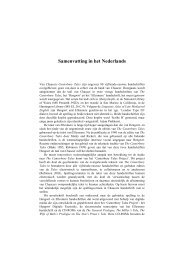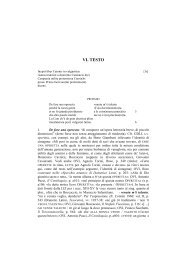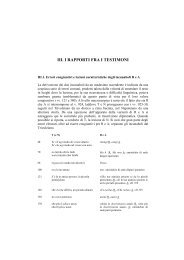Linking elements in compounds - LOT publications
Linking elements in compounds - LOT publications
Linking elements in compounds - LOT publications
You also want an ePaper? Increase the reach of your titles
YUMPU automatically turns print PDFs into web optimized ePapers that Google loves.
SIMILARITY OF PLURAL ENDINGS AND LINKING ELEMENTS<br />
can slow the speech rate of a speaker <strong>in</strong> the standard language as speak<strong>in</strong>g the<br />
standard language may ―feel‖ less natural. The speakers from the Southern<br />
region <strong>in</strong> our study may thus have been less fluent speak<strong>in</strong>g standard Dutch<br />
than the other speakers <strong>in</strong> our study which may have slowed their speech rate.<br />
A slowed speech rate may have obscured differences due to f<strong>in</strong>al lengthen<strong>in</strong>g <strong>in</strong><br />
phrases versus <strong>compounds</strong>, although this presumably caused the phonological<br />
differences <strong>in</strong> the pronunciations of plural end<strong>in</strong>gs versus l<strong>in</strong>k<strong>in</strong>g <strong>elements</strong> <strong>in</strong><br />
the other regions of the Netherlands.<br />
In sum, pronunciation variation was found for both plural -en and l<strong>in</strong>k<strong>in</strong>g en<br />
<strong>in</strong> standard Dutch. Moreover, a systematic relation between the pronunciations<br />
of plural -en and l<strong>in</strong>k<strong>in</strong>g en was detected: Speakers from the Northern and<br />
Eastern regions produced [(ə)n] most often for both the l<strong>in</strong>k<strong>in</strong>g <strong>elements</strong> and<br />
plural end<strong>in</strong>gs, while speakers from the Middle and Western regions produced<br />
[ə] most often for both. For speakers from the Southern region, we found no<br />
preference to pronounce either [ə] or [ən] <strong>in</strong> <strong>compounds</strong> or phrases.<br />
Furthermore, almost all of the speakers studied here showed a tendency to<br />
realize more often an [n] <strong>in</strong> plural nouns than <strong>in</strong> <strong>compounds</strong>, which can be<br />
expla<strong>in</strong>ed by prosodic differences between the two contexts. Illustrative of the<br />
possible <strong>in</strong>fluence of dialect are the speakers from the Southern region. Their<br />
pronunciations of en <strong>in</strong> phrases and <strong>compounds</strong> were found to be identical and<br />
conta<strong>in</strong>ed a relatively high rate of n-realization. The variety occurr<strong>in</strong>g <strong>in</strong> plural<br />
end<strong>in</strong>gs <strong>in</strong> the Limburg dialects and a slower speech rate may have caused these<br />
results. We conclude that speakers from different regions of the Netherlands<br />
do not dist<strong>in</strong>guish between the l<strong>in</strong>k<strong>in</strong>g en and the plural -en <strong>in</strong> their speech<br />
production. Possibly, speakers of Dutch consider l<strong>in</strong>k<strong>in</strong>g en and plural -en as the<br />
same morpheme.<br />
51


